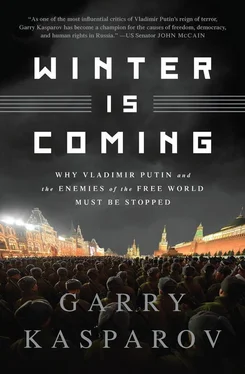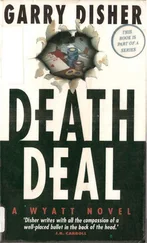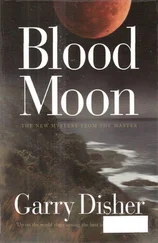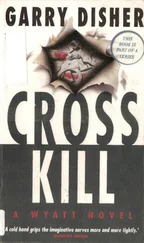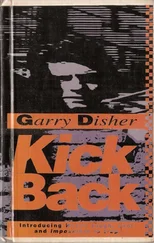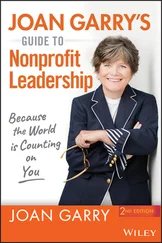As Russian oligarchs spread their wealth and Putin’s political influence around the globe, Western companies returned the favor by investing in Russia. Energy giants like Shell and British Petroleum (BP) couldn’t wait to get a shot at Russia’s immense energy reserves and the long-dormant Russian marketplace was an irresistible target, no matter how many concessions were needed to make deals. Human rights in Russia were the least of Western corporations’ concerns. Even after Western firms were repeatedly betrayed, cheated, and threatened by their Russian partners and kicked out of partnerships or the country, they came back looking for more like beaten dogs to an abusive master.
The most remarkable example was BP CEO Robert Dudley fleeing Russia in 2008, when he was the CEO of a joint venture with a group of Russian billionaires. Harassed continually and afraid of arrest (and that he was being poisoned, according to one account), Dudley fled and went into hiding. And yet a few years later he was back in Russia for a photo op with Putin himself announcing an oil exploration deal with state-controlled oil company Rosneft! And while foreign investment has made up some of Russia’s GDP growth-most was due to the huge rise in oil prices-little of it improved the lives of average Russians. Most of these new riches turned right around and ended up in Western banks and real estate in the name of Putin’s oligarch elite.
So while our ever-evolving opposition movement made some progress in drawing attention to the undemocratic reality of Putin’s Russia, we were in a losing position from the start. The Kremlin’s domination of the mass media and ruthless persecution of all opposition in civil society made it impossible to build any lasting momentum. Our mission was also sabotaged by democratic leaders embracing Putin on the world stage, providing him with the leadership credentials he so badly needed in the absence of valid elections in Russia. It is difficult to promote democratic reform when every television channel and every newspaper shows image after image of the leaders of the world’s most powerful democracies accepting a dictator as part of their family. It sends the message that either he isn’t really a dictator at all or that democracy and individual freedom are nothing more than the bargaining chips Putin and his ilk always say they are. In the end, it took the invasion of Ukraine to finally get the G7 (I always refused to call it the G8) to expel Putin’s Russia from the elite club of industrial democracies.
By 2008, when Putin loaned the presidency to his shadow, Dmitry Medvedev, it should have been clear to all that Russian democracy was dead. The only other names on the ballot were the loyal opposition in their appointed roles: Gennady Zyuganov of the Communists and Vladimir Zhirinovsky, who has been playing the part of far right extremist since 1991. Both served, and still serve, as harmless window dressing to provide the merest appearance of democracy. And yet one democratic leader after another lined up to play along with the charade. George W. Bush phoned his new counterpart to offer congratulations. French president Nicolas Sarkozy warmly invited Medvedev to Paris. Similar encomiums were offered by the leaders of Germany, the United Kingdom, and too many others to list. This, despite the fact that the election had been boycotted by the main European election monitoring body, the Organization for Security and Cooperation in Europe (OSCE), to protest against restrictions imposed on observers.
Two months after Barack Obama was sworn in, he and Secretary of State Hillary Clinton launched a new foreign policy initiative to “reset” the United States’ relationship with Russia.
And not in the realist way you might expect after Russia had invaded tiny Georgia just months earlier to establish independent enclaves that are still occupied by Russian troops today. No, this was an American charm offensive. (One complete with misspelled props—the infamous “Reset Button” Clinton presented to her Russian counterpart Sergei Lavrov actually said “overcharge” in Russian, not “reset.”) The Obama administration wanted to believe the youthful and cheery Medvedev was a reformer, a potential liberalizer who would change Putin’s course. You can call this naiveté from the early days of “hope and change” if you like, but incredibly, this policy of engagement continued long after it became clear Putin was still very much in charge and that his plan to turn Russia back into a police state was unchanged.
Putin’s “Operation Medvedev” was a total victory. He gained four more years to further eliminate all domestic opposition while avoiding any consequences on the international front. When Putin predictably returned to the president’s office in 2012 he barely bothered to make the election presentable. Like most dictators, Putin has good animal instincts when it comes to evaluating his rivals, and he knew he would face no real opposition from other world leaders. And, also like all dictators, Putin grew bolder with every successful step. Dictators do not ask why before they take more power; they only ask why not. When Putin looked carefully at the way leaders like Merkel, Cameron, and Obama treated him, he never found any reason not to do exactly as he pleased.
One needn’t be a student of history to recognize this pattern, nor to see how it led to war in Ukraine. The complacency that set in among the nations of the free world after the Iron Curtain came down could not be easily shaken off to deal with someone like Vladimir Putin. He exploits engagement to his advantage while conceding nothing. For years, as the human rights situation in Russia steadily deteriorated, Western politicians and experts such as Condoleezza Rice and Henry Kissinger defended Western feebleness in confronting Putin by saying Russians were better off than in the days of the Soviet Union.
First off, a sarcastic congratulations to them for damning us with faint praise! But instead of making comparisons to the 1950s or the 1970s, what about to the 1990s? It is not difficult to improve on life under the totalitarian Communism of Stalin or Brezhnev, but what about life under Yeltsin? What about the destruction of every newborn democratic institution in Russia while the Rices and Kissingers of the world looked on? If the human rights of the Soviet people and the political prisoners in the vast gulags mattered, and they mattered very much, to so many leaders and citizens of the free world, why do dissidents in the twenty-first century not deserve similar concern and respect? Effective policies are based on principles. Ronald Reagan would talk with his Soviet counterparts but, as Vaclav Havel once told me, Reagan would also toss the list of political prisoners on the table first!
In my first years as an activist I often said that Putin was a Russian problem for Russians to solve, but that he would soon be a regional problem and then a global problem if his ambitions were ignored. This regrettable transformation has come to pass and lives are being lost because of it. It is cold comfort to be told, “You were right!” It is even less comforting when so little is being done to halt Putin’s aggression even now. What is the point of saying you should have listened and acted when you still aren’t listening or acting?
The mantra of engagement, and of refusing to address the crimes of dictatorships—especially if they are important business partners—has become so entrenched in the last twenty years that even the invasion of a sovereign nation in Europe cannot break its hold. The United States and the European Union have levied sanctions against Russian officials and industries, if mostly too little and too late. And yet they still refuse to admit the need for condemning and isolating Russia like the dangerous rogue state Putin has turned it into. This generation of Western leaders refuses to admit that evil still exists in this world and that it must be fought on absolute terms, not negotiated with. It’s clear at the moment that the democracies of the twenty-first century are not ready for this fight. It is still an open question whether or not they can and will make themselves ready.
Читать дальше
